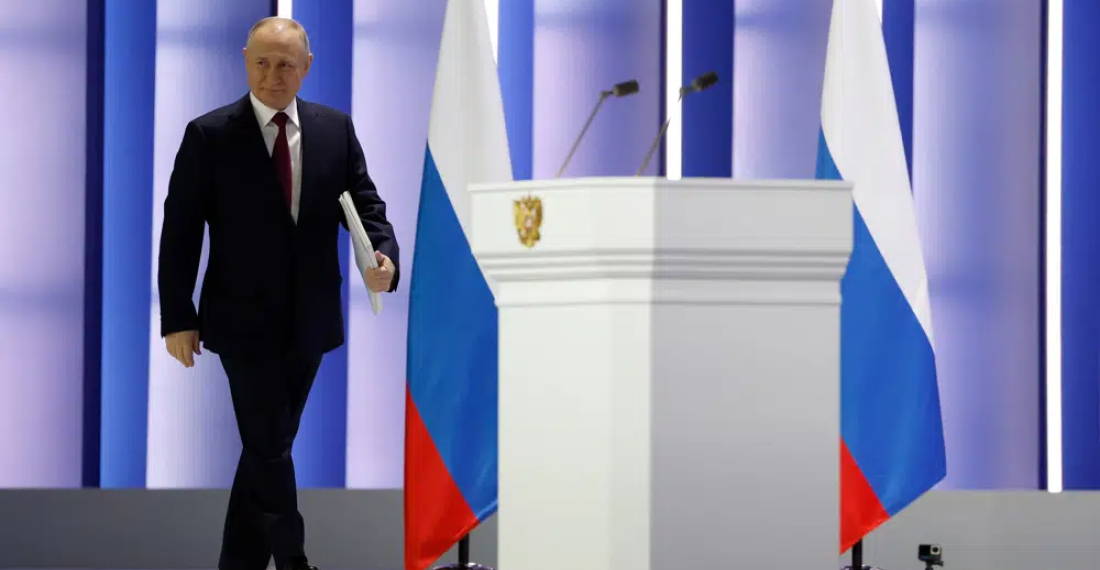Russian President Vladimir Putin has delivered long-delayed State of the Nation speech on Tuesday (21 February), in which he has announced that Russia will withdraw from the New Start arms reduction treaty with the US.
Speaking for nearly two hours, the Russian President repeated many arguments with which observers have become all too familiar over the previous months and years, especially since the start of the full-scale Russian invasion of Ukraine on 24 February last year.
Throughout his address, Putin continued to blame Ukraine and the West for the war, despite it being Moscow that launched a full-scale invasion that is believed to have had capturing Kyiv within three days as one of its main goals. He again characterised the Ukrainian government as a "neo-Nazi regime", a claim which he has often repeated to justify his "special military operation".
Russia pulls out of New Start arms reduction treaty
One of the biggest announcements coming from his speech was that Russia would pull out of the New Start strategic arms reduction treaty with the US, adding that Russia needs to be ready to test nuclear weapons if the US does so first.
New Start is the last remaining nuclear arms deal between Russia and the US and it was extended for five years in 2021.Originally signed in 2010, the treaty limits each side to 1,550 long-range nuclear warheads, a lower number than under the previous Start deal.
Other claims that he once again repeated included characterising Ukraine as "hostages" to the West, and that the West wants to change the war from a "local conflict into a global one".
In response, Ukraine said Putin's speech showed Russia has "arrived at a dead end" - while the US described Putin's speech as an "absurdity".
Biden to give speech in Poland
Following Putin's speech in Moscow, the US President Joe Biden will give a speech in Warsaw having met with Ukrainian President Volodymyr Zelensky in Kyiv yesterday.
He expected to stress the vital role the United States has played in galvanising Western backing for Ukraine against Russian aggression, and will also be looking to shore up support for his policy at home, where some politicians are expressing doubts about the scale of US involvement.






